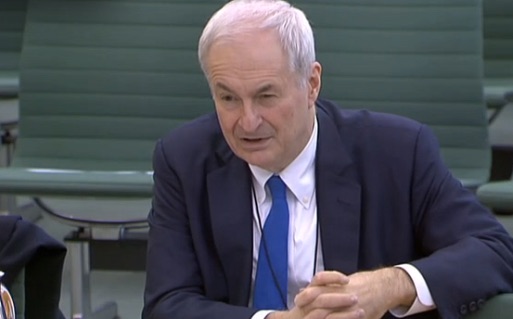[contextly_auto_sidebar id=”dVlbOD6tvccaRSNe9Lz4XTPuEpMxlwkl”]
 When Paul Gambaccini was told no further action would be taken against him in October 2014 and we issued a statement complaining of the lengthy period he had languished on police bail, we never could have imagined the speed with which the Government would respond with Theresa May immediately announcing a review of pre-charge bail and, on 20 March, the Home Affairs Select Committee backing all our recommendations for reform (see HERE).
When Paul Gambaccini was told no further action would be taken against him in October 2014 and we issued a statement complaining of the lengthy period he had languished on police bail, we never could have imagined the speed with which the Government would respond with Theresa May immediately announcing a review of pre-charge bail and, on 20 March, the Home Affairs Select Committee backing all our recommendations for reform (see HERE).
Due to the press obsession with celebrity the media headlines have largely focussed on the recommendations for anonymity of suspects of sexual crimes, but the consequences of an arrest go far deeper than a loss of reputation (which is not to be underplayed). Paul Gambaccini’s case highlights the plight of many in legal limbo awaiting a decision to be made. In July 2014, almost 19,000 in the Met police area were on pre-charge bail, 4,630 on bail for over six months. The Select Committee MPs were incredulous that the police re-bailed suspects on numerous occasions without a single explanation or attempt to justify and that the CPS would not write and apologise when no further action was taken.
I gave examples to the committee of a 13-year old on bail for over a year – almost 10% of his young life blighted by a police investigation; a young man awaiting a decision for seven months, four of those with the file sitting on a CPS lawyer’s desk without even being looked at before no further action was taken; a teacher forced into early retirement after an unblemished career while the police took two years to investigate his case eventually taking no further action. Of course there is also the example of the Sun journalists on bail for over two years, acquitted on Friday. An arrest can cause irremediable damage, limiting an individual’s ability to work, to go to school, to see their family and children, to travel to certain countries (such as the United States which will refuse entry even when no further action has been taken following arrest). Their partner may even be suspended from work.
An arrest is not a finding of fact or guilt, the threshold required to arrest is extremely low with the arresting officer only requiring “reasonable suspicion”. In many circumstances an allegation can easily be investigated before an arrest or without an arrest even being required (suspects can assist as volunteers) but often decisions to arrest are taken prematurely and when there is no necessity to do so.
Practitioners and the National Policing Improvement Agency itself have identified a worrying trend of arrest first, investigate later and have expressed concerns regarding the quality of the investigative process. Interviews can be used as ‘fishing expeditions’. Of those on bail for greater than 28 days in 2014, 50% had no further action taken against them. For this reason, anonymity should be allowed for all suspects pre-charge, unless there are exceptional circumstances to release a name. Anonymity should only be removed once there is sufficient evidence to charge.
Not only are reviews and restrictions on the time limits of pre-charge bail required, but also on the conditions of bail. Too often standard conditions are imposed and remain for months, sometimes years, without proper consideration of whether they are proportionate or necessary. Suspects can be prevented from seeing their children, restricted to a geographical area, not allowed to see friends, denied the ability to have a spontaneous night out or away from home. A particularly egregious use of pre-charge bail is the way in which it is used to restrict the right to protest and to prevent individuals from attending public events. During the Royal Wedding, the Olympics, environmental campaigns, Occupy and student demonstrations, police arrested participants then released them on pre-charge bail with restrictive and disproportionate bail conditions which prevented them from attending these events. The worst example of this was Critical Mass where 182 cyclists were arrested before the Olympics, bailed for the period of the Olympics but given conditions not to enter any Olympic site. Only nine were charged. If bail and subsequent conditions are being used as a political tool this has a chilling effect on the right to protest and freedom of expression.
Bail reform will provide greater transparency and accountability on the part of the police but will only become a reality if the burden is on the police and CPS to justify their decisions and suspects are allowed effective representation. Otherwise it will just become a rubber-stamping exercise. Police culture regarding arrest and subsequent bail needs to change. If the Government takes up the recommendations by the Select Committee, hopefully a “Change is Gonna Come”.






